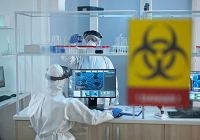Exploring the Clinical Trial Landscape: Phases, Data, and Global Perspectives
Clinical trials are very important in the process of scientific discovery to provide new treatments and cures for various diseases. The process involves rigorous testing, data collection, and regulatory review to ensure safety and effectiveness. Let's dive in with the results of clinical trials and examine the various aspects, the drug development process, and its importance in the US and India.
Understand the Drug Development Process
The drug development process begins with extensive research in the laboratory to identify potential treatments and study their biological effects. When an effective drug candidate is identified, preliminary testing is conducted using animal models to assess safety and efficacy before proceeding to human trials.
Different Aspects of Clinical Trials
Clinical trials are conducted in four phases:
1. Phase 0 (exploration):
- Participants are few (mostly healthy volunteers).
- Emphasis on pharmacokinetics (how the body processes drugs) and pharmacodynamics (how drugs affect the body).
- It is rarely used.
2. Phase 1 Trials:
These trials involve a small group of healthy volunteers (20-100 participants) to evaluate the drug's safety, dose range, and initial pharmacokinetics (how the drug moves into in the body).
3. Phase 2 Testing:
In this phase, the drug is tested in a large group (usually hundreds) of patients suffering from the disease that the drug is intended to treat. Emphasis is placed on early efficacy and safety assessments.
4. Phase 3 Trials:
These trials enroll thousands of patients to evaluate effectiveness, monitor side effects, and compare the drug to conventional treatments or a placebo. Phase 3 trials provide critical data that regulators use to determine whether a drug is approved for clinical use.
5. Phase 4 Tests:
Also called post-marketing surveillance tests, these tests are conducted after the approval of the drug to monitor long-term effects and collect information on complications, benefits and optimal use of the drug.
The Clival database includes over 500,000 clinical trials at different stages (from Phase 0 to Phase 4). It includes international legal market data and statistics, including emerging markets such as the United States, European Union, Australia, New Zealand, Japan, Canada and India.
US Clinical Trials
- The United States plays a major role in global clinical research and has a strong regulatory framework overseen by the Food and Drug Administration (FDA).
- The FDA requires extensive documentation of clinical data to ensure that a drug is safe and effective before it is sold to the public.
Clinical Trials in India
India has become a major player in clinical trials in the world because of its large number of patients, medical professionals, and low costs compared to Western countries. However, conducting clinical trials in India requires strict ethical guidelines and regulatory oversight provided by the Central Drugs Standard Control Organization (CDSCO).
Challenge:
- Ethical considerations.
- Ensure patient safety.
- Resolve differences.
Clival Database
Clival Database is a repository based on clinical trial insights that offers many services including:-
- Company Analysis and Pipeline - The Clival Library provides insights on more than 50,000 products / product candidates from 60,000 sponsors / organizations across the medical fields.
- Safety and Effectiveness Data - Clival's clinical trial data helps analyze the drug's safety and effectiveness. Promoting transparency and accountability through legal agreements.
- Product Level Analytics - Clival provides product-based trial data for new drugs. Users can explore insights categorized by basic analysis, stage of development, brands, therapeutic areas, sponsors, estimates, competition, sales data and more.
- Reasons for Discontinuation/Termination - The Clival database contains information on reasons for termination, termination or suspension of clinical trials.
Conclusion
In short, clinical trials are essential to advancing medical science and providing new treatment options to patients around the world. Understanding the aspects of clinical trials, the regulatory environment in countries such as the United States and India, and the importance of reliable clinical data is essential to understanding the complex and extensive process of drug development. As science advances, clinical research methods and standards also advance, ensuring that new treatments are safe, effective, and available to those who need them.
Frequently Asked Questions

Optimize Your trial insights with Clival Database.
Are you exhausted from the uncertainty of trial insights pricing? Clival Database ensures the clarity in the midst of the global scenario for clinical trials to you.Clival Database is one of the best databases that offers an outstanding number of clinical trial data in terms of 50,000+ molecules and from primary regulatory markets as well as new entrants like Indian and Chinese markets.
Elevate your trial success rate with the cutting-edge insights from Clival database.
Check it out today and make more informed sourcing decisions! Learn More!







